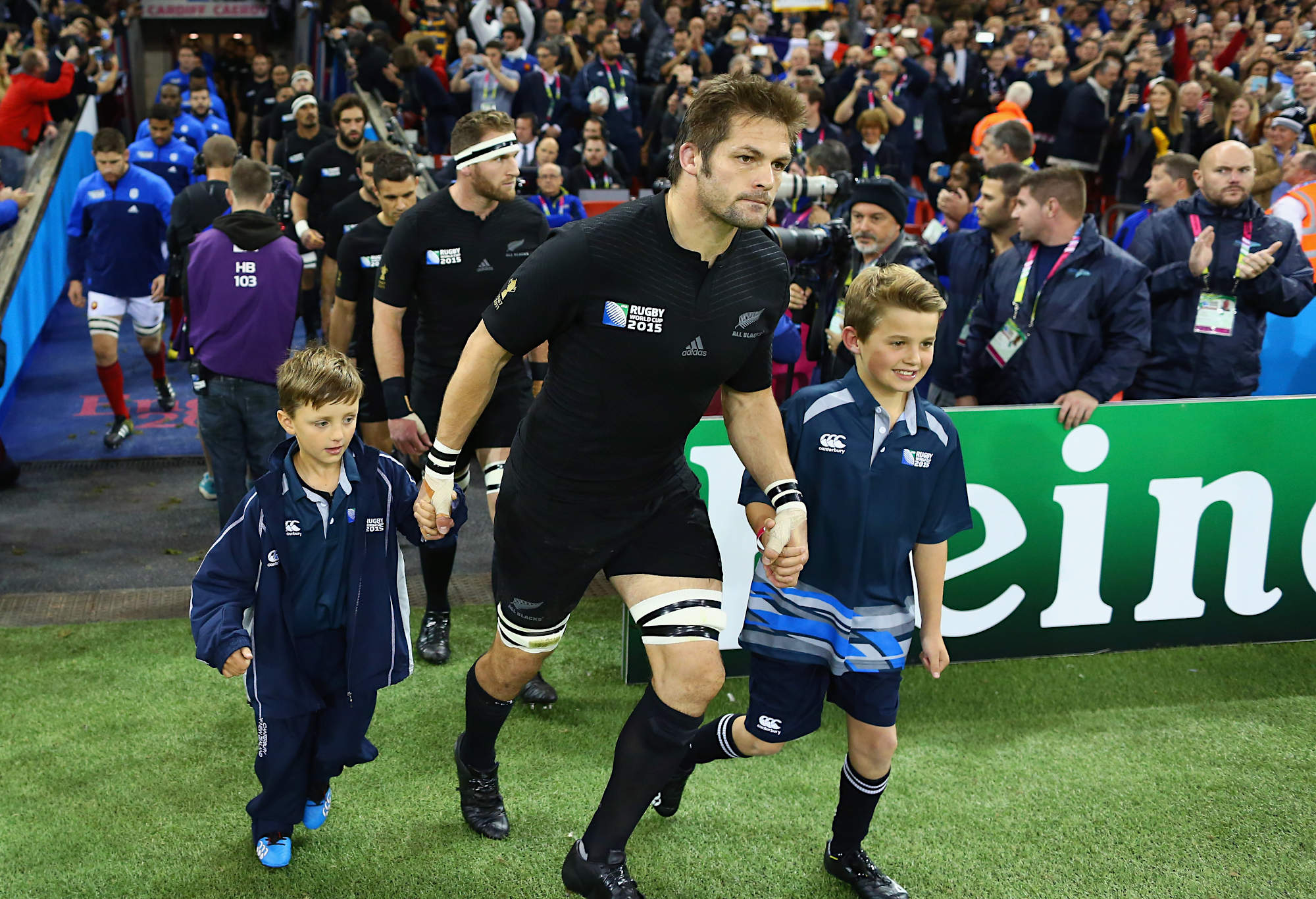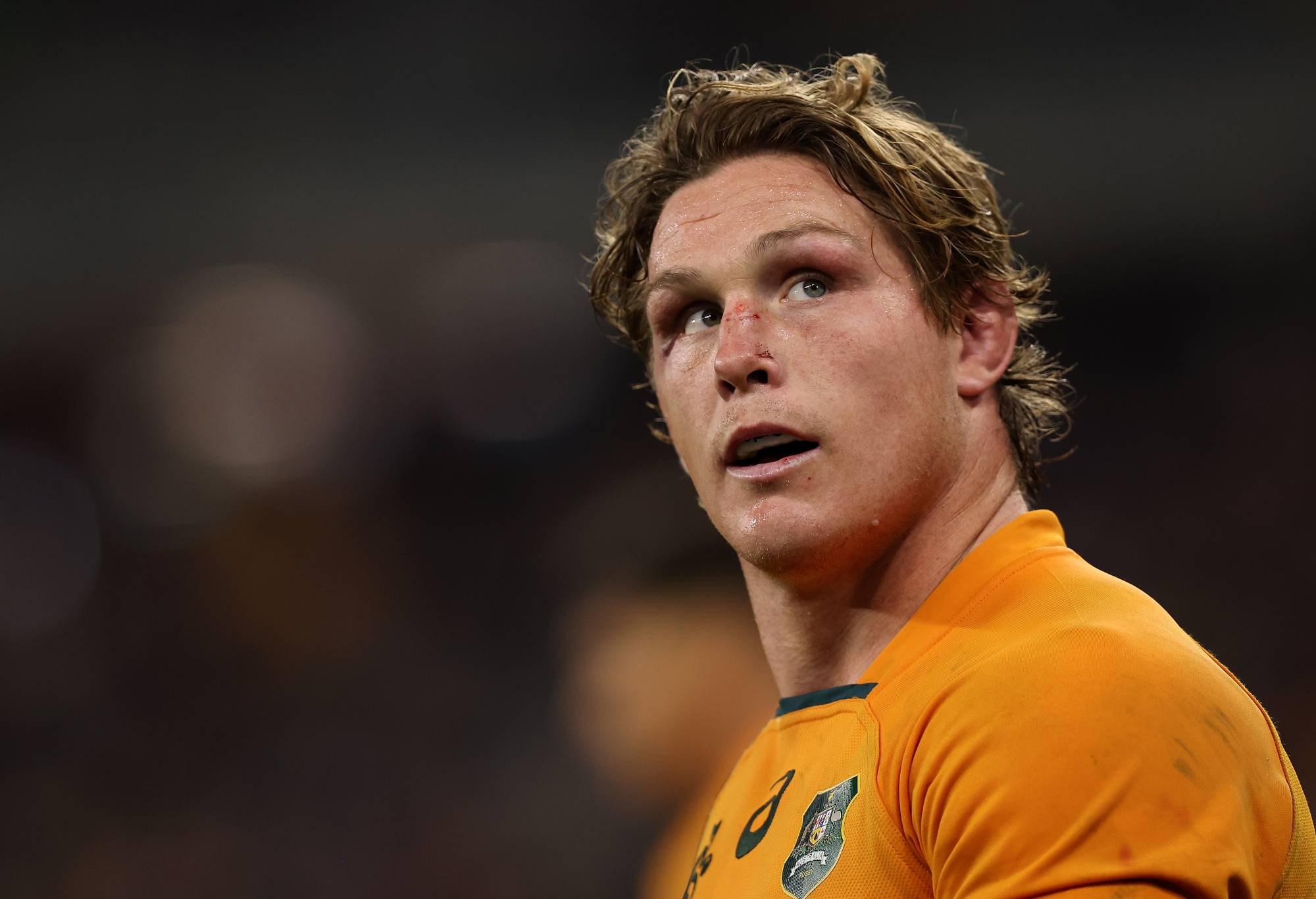Pilfer (verb). To steal things of little value or in small quantities, especially from the place where you work. Thus saith Oxford.
Synonyms: filch, purloin.
Connotation: stealthily stealing serviettes at supper again and again. Rolls of toilet paper from work. The work of a real jackal: base acts of dishonesty, but not a killing.
By the way, look up the word ‘fetcher’ in the dictionary and smile as you read: “a rugby flanker who specialises in winning the ball more than carrying it frequently.” A senator in Canberra comes to mind.
Yes, after discussing positions one through six in recent weeks, it is time for the beloved seven. We love the open sider.
The tight five anthology was a tough slog for Australian readers, but there are few countries who can boast better fetchers than the land down under. A number seven has the soul of a larrikin, the dog of a dingo, and the face of an angel.
He is the ribbed condom of the team; saving you just when you think are truly rooted.
A 2011 quarterfinal in Wellington saw every Springbok, led by Schalk Burger, try to rip David Pocock’s head off by exorcising his neck, but the best fetchers (think of George Smith, Michael Jones, Richie McCaw, Thierry Dusautoir, Neil Back, double Burgers — Schalk and Jacques, Josh Kronfeld, Sam Warburton, Serge Betsen, and the underrated Francois Louw) seem impervious to pain on the pitch.
Once in position, they are limpets. Barnacle-encrusted sons of bitches. But off the pitch: knights (McCaw, Jones), senators, and natural commentators (Warburton and Schalk Burger among the best).
In the era when long phases of clean rugby are seen as the institutional good, with many virtuous pundits seeking the extinction of the jackal, it is noteworthy that the latest in a long line of great sevens has appeared: the reigning “wapotty” (I am trying to make this popular) or World Player of the Year is the baby faced assassin, the Dutch Disciple, the Wicklow Wizard of Wesley College, the omnipresent Josh van der Flier.
He thinks his way around the pitch, almost like a bat with sonar. He may not be as fast as the Wallabies’ incumbent seven (but in his prime as a sprinter skateboarder, what forward was?) but takes better lines, chases fewer lost causes, and even if he is not much bigger than Michael Hooper, he shifts bodies easier. The best open siders are both very open and have a very tough side.

(Photo by Richard Heathcote – World Rugby via Getty Images/World Rugby via Getty Images)
A perfect seven can get over the ball, but also carry it with power. The All Blacks love their seven so much they use him for their eight.
The jackal seven does not need to slow every ball in a five or ten phase defensive set. He just needs to know when to go, how to feint, the shoulder height which appeals to the cop on the field, the side his hand can touch grass and get away with it, the distance of disengagement required to steal the crown jewel, and he must always listen and look.
If he can lose six but win the seventh, like a surfer choosing his wave, every attack is doomed.
A seven notices things. A trait which helps in a bank robbery.
When a bank is robbed in films, we pull for the robber. We know his passionate promise to his girlfriend, waiting with her small bag at the diner, is destined to run into a bullet or other snag at one hour and thirty into the movie.
There is more love for the merry men of Robin Hood in the forest than the salaried Nottingham lawmen. The noble thief beloved; the nobility’s law forever mocked.
A ruthless outlaw like Ned Kelly is celebrated far longer than Sir Redmond Barry who sentenced him to hang by the neck till death. Barry doesn’t even have a Wikipedia hyperlink to explore. Kelly lives on; no matter which way he went. To Barry’s customary edict: “May God have mercy on your soul”, Kelly is said to have retorted: “I will go a little further than that, and say I will see you there where I go.”
Judge Barry died less than a fortnight after Kelly hung.
For a year, I’ve eyed a bank near to my house. For many reasons, it would be the best bank to rob of all the banks I have imagined robbing.
The proximity of it appeals: your unimpeachable alibi thinks you are in the loo for a long morning poo, but you go out the window, mask, beanie, and mistyped laminated teller instructions in your hoodie, hop the fence, rob the bank, throw the bag of cash over the fence into the hole dug, move the dog kennel over it, get back in the WC and finish the job. Give the money away a decade later to a worthy cause. Nobody gets hurt when insured money helps earthquake victims.
In 1962 John Steinbeck won the Nobel Prize for literature, in large part for the last novel he would ever write, “The Winter of Our Discontent,” a dark morality tale of America’s fall. The antihero Ethan Allen Hawley, a direct descendant of American blue blood Ethan Allen himself, finds himself a midlife loser in a small Long Island town, a mere grocer’s clerk.
I read this book as a boy and did not focus on it as a deep literary growl about the coming darkening of America’s glorious post-War summer using Shakespeare’s phrase for parable of corruption or how a Brahmin can crawl into a Darwinian swamp to survive. There was one McCaw-like theme which stuck in my mind all these decades: robbing a bank and getting away with it.
In the novel, Hawley’s shop is steps away from a bank. As he slips down the slope to amorality, along with his plagiarist son, he quizzes his banker friend about how bank robbers get caught. His friend spells it out:
“Number one, record, got caught before. Number two — get fighting over the profits and someone blows it. Number three — dames. Can’t let dames alone, and that ties into number four — they got to spend that money. Watch new spenders and you got them.”
For Fraser McReight, trying to win the pilferer’s jersey from centurion Hooper, the lesson is analogical (absent dames) but clear:
“[Do] everything opposite. Never rob a sink if you ever got caught or booked for anything. No confederates — do it alone and don’t tell a soul, nobody. Forget dames. And don’t spend it. Put it away, maybe for years. Bring it out a little at a time and invest. Don’t spend.”

Fraser McReight. (Supplied photo by Andrew Phan/Rugby Australia)
Hawley used a Mickey Mouse mask, a leaking toilet, a rusty pistol, wadded paper in the alley door, and a holiday to build his heist but even when he concocted the perfect plan, pulled out because another even more wicked scheme to return to the elite of his town presented itself.
Knowing when not to pounce is key.
Many of the best opensiders look and seem innocent. McCaw, Warburton, Dusatoir, Louw, Pocock, Jones: clean-shaven, short hair, avoid the push and shove, speak nicely to the referee, ask him unsarcastic questions, and do not exalt Itoje-style when that rare and highly coveted breakdown steal is won. A ratio of 3:1 or even 4:1 (pilfers or penalties won versus penalties conceded over the ball) is the Holy Grail for a number seven.
The premier fetcher does not want a an accomplice over the ball: a ref often confuses tacklers with jacklers, and may not see clear release amongst all the limbs.
Schalk Burger and Michael Hooper are the anomaly: they won a lot of cards over the years (for different types of infringements). Since a seven is plotting every second of every game to get away with breaking the law, or at least nipping at the edge, it is best to not be too naughty in general play.
McReight had a low ratio of pilfer/penalty to conceded penalty in 2022 but the tendency is to only see the wins. Hooper has learnt to pick his battles more than when young.
Many Australian rugby watchers bemoan Hooper’s lack of Pocockitude. But not every team fields a quintessential fetcher at seven: South Africa’s talismanic captain (and six, which is seven in South Africa) Siya Kolisi has never truly played that role even at club level: he is a inspirational leader, dominant tackler, cleanly cleaner, and devastating carrier, but hookers, reserves, and even centres for the Boks win more breakdown penalties. In two months, the Wallabies and Boks square off in Pretoria, and the identity of the two loose trios is in doubt.
Hooper has been a world class player for a long time and is now on the downside of his career, but just like the United Kingdom, decline can be gradual and can still put on quite a show. He has surely lost a step by now, but he had a couple to spare.
His absence was notable in 2022 for a certain lack of starch in runaway losses. He does not give up or make accommodations for exhaustion, ever. When he stepped down for a sudden sabbatical, he just have been near the edge.

. (Photo by Paul Kane/Getty Images)
The Hooper-McReight duel in Townsville was a standoff. McReight won four turnovers. Hooper was all over the pitch for the victors. In one true head-to-head in open field, Hooper handily tackled McReight.
Might Eddie Jones experiment with McHooper? He had Tom Curry and Sam Underwood (Currywood) for England for a time. Later, Jones preferred to have a big six (Lawes) and Curry on the deck. If he wants a classic seven, he may choose the Curry-style apprentice. If he just wants fiery leadership, he will stick with the more Kolisi-type Hooper.
Jones has been fixated on the “easy” side of the draw in the Cup for four years and even though he changed teams, he is still looking at one of the same quarterfinal matchups: England’s Curry (still young but vastly experienced) would love to knock Eddie’s team out in the same way Pocock blocked the Boks.
If either is injured or falls afoul of the judiciary, Brad Wilkin is the next one off the bench, unless Jones decides to play like the Pumas and basically have three big sixes on the pitch (for the Wallabies, that could be Pete Samu, Rob Valetini, and Langi Gleeson, with Hooper becoming a late game breaker).
Or, McReight might just be the getaway driver: player number 20 with the scrum cap disguise and an alibi.
Australia does best when they have a Ned Kelly at the breakdown. George Smith was one of the best at it, ever. Pocock may have been the best. Hooper has been the Wallabies’ best player for many a season.
Each country in rugby seems to have a few positions which resonate with it best at every level: school to club to pro to Test. South Africa: locks and props. Ireland: centers and hookers. New Zealand: wings and flyhalves.
For Australia, I’ve sensed it is sevens and nines.
When I was in Sydney last year, on a rainy day on the day of the Wallaby-Bok Test at Allianz, I went to Easts Rugby Club and watched a couple of touch games. I was struck with how many times the loosies did the jackal straddle and forced the ref to make a decision. Nary a counter ruck but dozens of attempted bank robberies, most of which failed. But I got the sense then and from my viewing of university and Under 20 and Super Rugby Pacific matches the robber is the hero, not the cop, in Australia.
For the Wallabies to exceed expectations this year (make a grand final with a dream draw) it is very likely a perfect seven performance will be required.































































































